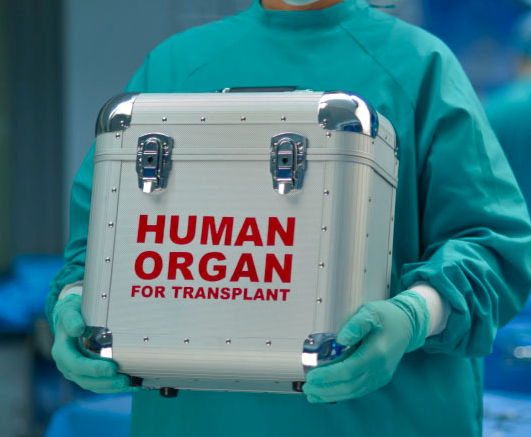
Transplant ethics for the 21st Century
New innovations in organ transplantation pose unique problems for bioethicists.

Transplant surgery has developed rapidly since the first successful heart transplants in the late 1960s. Newly developed techniques includes uterus, penis and larynx transplantations, and some researchers may shortly attempt to transplant testicle, ovary and fallopian tubes.
In a new article in the Journal of Medical Ethics, bioethicists Arthur Caplan and Duncan Purves explore the novel ethical questions that arise from this “quiet revolution” in the world of human organ transplantation.
The authors note that there are different ethical considerations for transplantations that are not concerned with extending life (as, for example, a heart or lung transplant is typically concerned with). These new procedures, they argue, require us to ‘rethink’ the traditional risk-benefit analysis used to evaluate the ethics of transplantation:
“the shift away from saving lives to making them better requires a shift in the ethical thinking that has long formed the moral rationale for organ transplantation. Doctors, patients, regulators, donors and payers need to rethink the risk and benefit ratio represented by trade-offs between saving life, extending life and risking the loss of life due to the quality of life-enhancing transplant surgery.”
Caplan and Purves consider various complexities surrounding ‘life-enhancement’ transplantation, such as whether we can really measure quality of life against quantity of life, or whether the risk of “losing everything” in death always outweighs the potential gain of life enhancement. They argue that doctors and patients must carefully scrutinised the ostensible advantages of such procedures.
“novel forms of transplantation carry with them all of the risks of reconstructive surgery (eg, death from anaesthesia and post-surgery complications such as infection), but they also increase the risk of infection because of their reliance on immunosuppressives, which are often accompanied by unique risks (eg, significant increase in long-term cancer risk and organ failure). Because the threat to quantity of life is so great in the transplant context, special attention must be paid to ensure that the expected improvements in quality of life are sufficient to outweigh it.”
Transplant ethics for the 21st Century
Xavier Symons
https://www.bioedge.org/images/2008images/Organ-Transplant.png
Creative commons
https://www.bioedge.org/images/2008images/Organ-Transplant.png
transplant ethics
transplant surgery
uterus transplant
